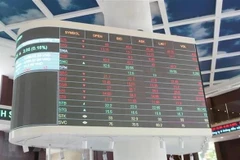Ngo Xuan Duy from Vietnam International DebtTrading Company said that the existing legal framework was inadequate andlacked transparency, causing difficulties for the operation of companies inthis field.
The mechanism for lending and debt collectionrelated to consumer credit was not complete, which was negatively affecting themarket, he said. “We are still confused about how to make a debt reminder phonecall in the right way,” he said.
In addition, many customers used fake documentsto borrow money. It was necessary to enhance the responsibility of borrowers tomake the market more transparent and prevent fraudulent activities, he added.
Both lenders and borrowers played the role inpromoting the development of the consumer credit market, he stressed.
Nguyen Hoang Minh, Chief Representative of the VietnamBanks Association in Ho Chi Minh City, said that being equated with usury madeit difficult for finance companies to operate.
The lending and debt collection results of somefinance companies slumped in the first quarter of this year, Minh said, addingthere was an increasing number of employees at finance companies quitting theirjobs recently due to occupational risks and social prejudices.
Borrowers must be aware of their obligationswhile companies must improve their debt collection culture, Minh said.
Never have consumer loans been in difficulty asrecently. The demand of borrowers was great, but finance companies did not dareto increase lending because of worries about the difficulty of debt collection.
Le Quoc Ninh, head of the Consumer Credit Clubunder the Vietnam Banks Association, said that consumer finance companies werein a lot of difficulty after negative information of companies which were notlicensed by the central bank. These companies were licensed by the provincialor municipal departments of planning and investment and operated under theCivil Law and the Law on Enterprise, not subject to the management of the StateBank.
Objectionable debt collection of some consumerlending companies and pawn shops which led to inspection and investigation bythe policy negatively affected the image of mainstream consumer financecompanies, he said.
Do Minh Hai, general direct of ATM Online, afintech operating in consumer lending, said that consumer lending was more andmore difficult in the context of economic slowdown, difficult business andproduction affecting the incomes of workers – the target customers of financecompanies.
A representative from FE Credit said that theshortage of regulations on borrowers resulted in increasing paymentdelinquency.
This was not a good thing when finance companieswere forced to tighten lending and consumers who had real demand could notaccess the credit, he said.
According to the State Bank of Vietnam’sstatistics, there were 16 consumer credit companies licensed by the centralbank.
Nguyen Van Dung, Deputy Director of the StateBank of Vietnam’s Branch in HCM City, said that the list of consumer creditcompanies and payment intermediary services was published on the website.
He urged consumers to be cautious about usurywhich was hiding in the shadow of finance companies, such as peer-to-peerlending apps, to avoid being scammed.
More reasonable rates
Besides proposing a legal framework for debtcollection to be completed, experts said it was necessary to set lending ratesat more reasonable levels for workers and disadvantaged groups.
Economic expert Nguyen Tri Hieu said thatconsumer credit rates of both official credit institutions or informal channelswere high. There was a regulation that rates above 20% per year was consideredillegal. However, the fact was that no one had actually been prosecuted for lendingwith rates higher than 20%.
For black credit, the rates could be up tohundreds of %.
Credit institutions should design morereasonable rates for workers and low-income earners, said Nguyen Hoang Bao Tran,Deputy Chairwoman of the Binh Duong Labour Confederation./.




























